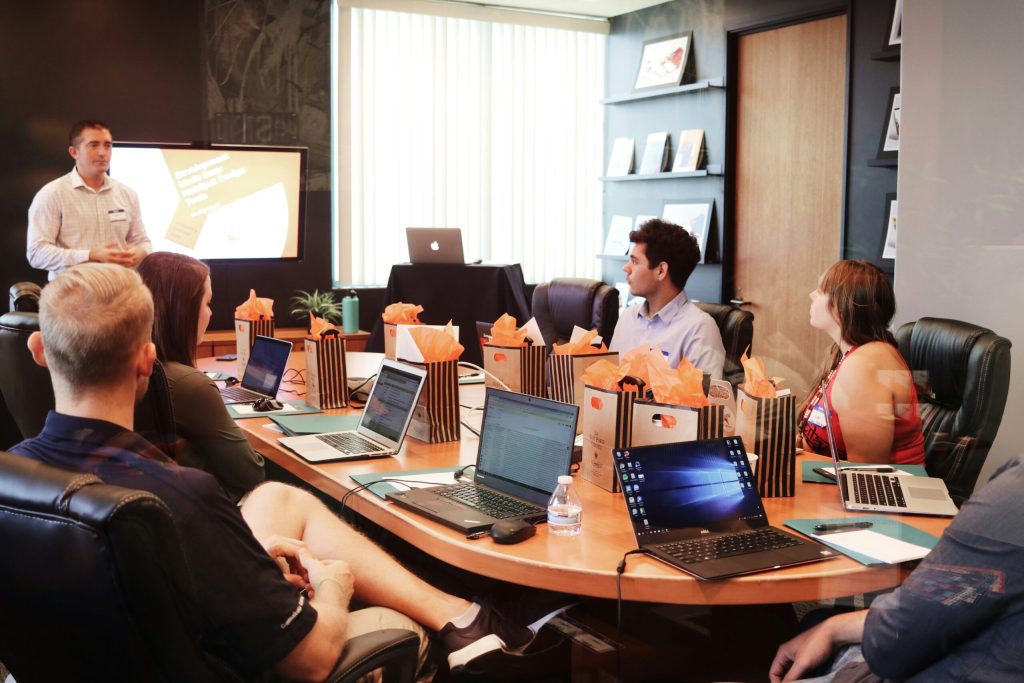5 Ways to Become People-focussed in 2020
Build well-aligned teams
Teamwork is one of the most vital elements to ensuring business goals and objectives are met, and failing to build a winning team will not only cost the business, but damage culture. To become more people-focussed and goal-oriented, teams ought to be strategically created, taking into consideration variations in skill set, personality, age and experience. Some modern organisations go on to consider personal background, culture and diversity when creating their teams, but the parameters are typically determined by the team’s objectives, and the organisations greater vision. Each parameter plays an important role in how the team functions on an organisational and personal level, and for a team to thrive a balance of the two is essential. Difference in skill and experience ensures the technical needs of the team are met, and while this is critical to performance and success, personal factors such as age and personality should not be pushed aside. A team that’s personally dis-aligned can spark miss-communication and team conflict issues, to name a few. It’s also important that each member of the team know exactly what is required of them as individuals and of their team as a body, and how their contribution impacts the organisation. This creates a culture of accountability and even fosters motivation as their value is realised.
Encourage diversity and inclusion
Encouraging the recruitment of a diverse workforce has become more important to organisations, whether it be diversity in race, sexual orientation, culture or nationality. It’s not to say organisations were opposed to diversity in the past, but becoming more people-focussed means encouraging diversity and identifying its growth opportunities. Diversity provides invaluable insight into audiences and markets made up of diverse groups, and injects a unique energy into the workplace brought on by different ideas, world views, life experiences and personal backgrounds. It also promotes creativity and establishes a forward-thinking culture which is invaluable to organisations committed to growth, expansion and success.
Challenge antiquated workplace ideals
Technology has made the world a global village. Smartphones, laptops and instant messaging means organisations can communicate with employees wherever they may be. For this reason, most modern organisations are happy for employees to ‘work from home’. In the past this was frowned upon, perhaps because there was no way of tracking daily performance. But today it’s different. In fact, research suggests working remotely improves productivity as technology (particularly instant communication), has erased the boundaries of working hours. People needn’t be at work to reply to emails or messages, they are now always reachable, and will more often than not deal with work-related tasks instantly regardless of time or location. However, antiquated workplace ideals needn’t be associated with technology alone, they’re also mindsets and processes that may once have been a traditional approach, but which now hinder growth and fail to align with the needs of modern employees and the organisation’s vision.
Bridge the gap between employer and employee
The relationship between employer and employee is one that should be constantly nurtured; and it is the responsibility of management to take care of it. It is this relationship that helps foster engagement, boosts productivity, and establishes culture. Bridging this gap can be achieved in a number of ways, through listening to the needs of the workforce (i.e surveys and routine communication or ‘catch-ups’, transparency in terms of business strengths, weaknesses or imminent change; workforce training and team building. The employer and employee were once seen as two separate entities, which of course created feelings of intimidation amongst employees, and; but today it’s important that they’re seen as one body working together towards a common goal. Again, this improves engagement and boosts motivation through approachability and transparency.
Encourage personal development and well-being
We live in a fast-paced, stress-induced era where, more than ever, we are realising the impact pressures of modern life have on one’s wellbeing and mental health. As technology evolves, as new industries arise and competition increases, so the pressure intensifies. While it is the responsibility of individuals to take care of their well-being, it is also the responsibility of the organisation to encourage personal and emotional development. If you are serious about becoming more people-focussed this year, consider training, coaching, and encouraging rest when necessary. Some modern organisations such as the Huffington Post for example, have even introduced meditation and yoga into their workplace. Essentially, the goal is to keep the workforce happy, motivated and focussed rather than fatigued and despondent. It is an invaluable tool that boosts productivity but also helps to retain staff who are positive, energetic and enthusiastic about their jobs and the greater organisational vision.



